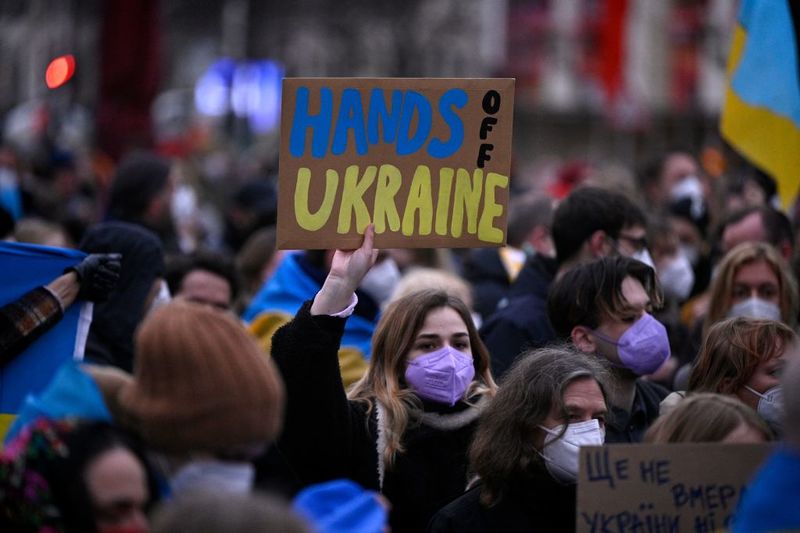In her column, Gülseren Onanç, the Founding Chair of the SES Equality and Solidarity Association, argues that there will be no winners in Russia’s assault on Ukraine, and women burden the gendered consequences of war.

Gülseren Onanç
When I started working in Moscow in 1991 as the sales and marketing manager of a Turkish pharmaceutical company, I felt very lucky. I had just finished my master’s degree in international marketing in the USA; the Soviet Union was opening up to the West with the polices that became to be known as openness and restructuring (Glasnost and Perestroika), Turkish companies had a competitive advantage thanks to Özal’s foreign trade support policies. My dream was to make a Turkish brand a global brand, and this was a great starting point.
Having arrived at Moscow with a three-and-a-half-hour flight from the Turkey during the heat of August, the city greeted me with a cold, cloudy, grey weather. A cold grey colour prevailed in the airport, streets, cars, shops, and everywhere. Time seemed to have stopped twenty years ago. Moscow, the meeting point of this huge country with 6 time zones, was a huge metropolis like Istanbul and New York.
The military coup against Gorbochov, which took place a week after I left, was a historical process that triggered the disintegration of the Soviet Union. However, it was “too light” for someone like me who had seen the repression in Turkey during the 1980’s. I was one of the lucky ones who lived through that historical process. The union was divided into 15 autonomous republics a few months later. My expectation in those days was that the disintegrating Soviet Union would lead to the formation of prosperous societies that respected human rights, democracy and the rule of law. This geography, which was ruled by the communist regime for 75 years with equality and solidarity at its core, could create a welfare society next to Turkey with a structure similar to the European Union.
It has been 30 years, and unfortunately, this dream did not come true. The Central Asian republics were devastated at the hands of corrupt authoritarians. Moscow (I can say the Kremlin) has never given up its role as the “big brother”. While Putin was implementing the new Eurasian policy in the region, he cooperated with the authoritarian powers. He even worked for the election of Trump in the US elections. Now, taking advantage of the world’s energy crisis, it launched a war with Ukraine and sent a clear message to NATO.
Is a new cold war starting?
According to BBC Turkish, with the rapprochement of the two authoritarian presidents of Russia and China, Putin and Xi Jinping, increased their cooperation in the military field in recent years. The co-signed statement of Vladimir Putin and Xi Jinping, who met in Beijing at the Winter Olympics, stated that “convergence” has now turned into a “geopolitical axis.” This perhaps intensified some speculation that a joint NATO-like organization might soon be on the agenda.
We must raise the voice of peace
While authoritarianism is directly linked to the war-making process in Ukraine the supporters for peace are mobilising around the world to demonstrate the consequences of war. There will certainly be no winners in this war, but the loser is clear: women and children.
In eastern Ukraine, many widowed single mothers and elderly women struggle to survive alone alongside a war that has killed an estimated 14,000 people since 2014.
We must seek answers to these questions:
- Will the world become a bipolar and a war-risk-ridden place again, dominated by the arms industry and militarism?
- How can we stop this trend?
- How can we give a voice to peace?
Here are my suggestions:
Let’s resist authoritarian governments: The polarization and nationalism raised by authoritarian populist leaders are fueling the war. Increasing power of male-dominated, populist, authoritarian right-wing governments in the world have started to threaten not only their own countries but the world. Politicians such as Putin, Xi Jinping, Bolsonaro, Orban, Erdogan, Maduro are not only destroying democracy in their own countries, but also spreading the language of conflict and war to their regions and the world.
Let’s demand peace: The word peace, like many other words, has unfortunately become a word that is emptied and those who demand peace are targeted as terrorists. Peace academics were targeted and suspended from their jobs because of a statement they signed in Turkey. Today is the time to demand “peace!”
Let’s get more women at peace tables and politics: UN resolution 1325 says that women should be at peace negotiations. The world needs a peaceful, diversity-embracing political approach to women. Writer Ece Temelkuran in her article for Oksijen stated that “Women must be present with all their being so that a new and more just political order is established.
CHP Chairman Kemal Kılıçdaroğlu’s also stated that “this is my promise to all women, I promise at least 35 percent female employment in the state administration.” This is valuable but not enough. Representatives of the feminist movement should take place not only in the state administration but also in the political cadres that will restructure Turkey.
Let’s set up ministries of peace: Sociologist Asiye Müjgan Safe questions the claim that feminist women will create change. “Will the state mechanism operating with patriarchal principles suddenly change with the participation of women who defend feminist principles in this machine?” Asking the question too, Güven has a promising answer; “The feminist peace movement can achieve results in a long-term struggle. And this movement for peace along with a feminist foreign policy has deep roots. Leandra Bias’ proposal inspires us, let’s turn defense ministries into “peace ministries”.
Let’s give a voice to a feminist perspective at this time when the world needs peace.

